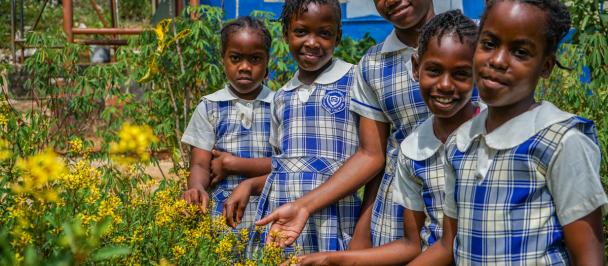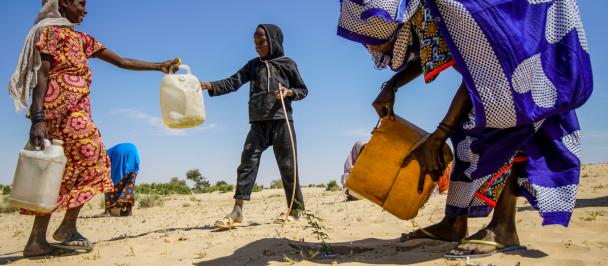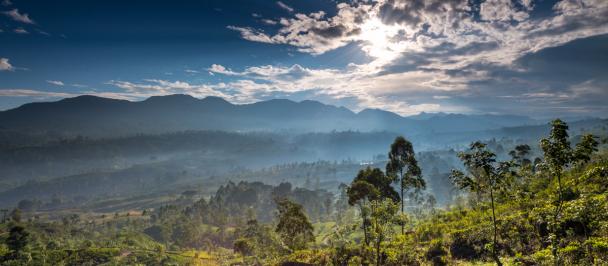In December 2015, in Paris, France, nearly 200 countries adopted the Paris Agreement. It was a celebratory and historic moment, marking the end of many years of negotiations.
The Agreement helped us to chart a way forward, based on science, real life stories and on-the-ground experience, integrating the diverse voices of people from all over the world. It remains the keystone for global climate action.
Of course, adopting the agreement was only the start. And five years later, the onus is upon all of us to realize its vision.
The challenges are immense, magnified further by the devastating impacts of COVID-19. More than ever, the international community must work together.
There are encouraging signs, from the world’s largest economies to Small Islands Developing States and Least Developed Countries, that remind us of our potential if we accept responsibility and embrace solutions.
On the eve of the fifth anniversary of the Paris Agreement, here are five key reasons to be optimistic.
1) As countries work to build back better from the COVID-19 crisis, many are leveraging their NDCs to advance a green recovery, applying the six “Recover Better” principles outlined by the UN Secretary-General.
Despite the impacts of COVID-19, a majority of countries still intend to increase climate ambition. Not only that, many are using their pledges under the Paris Agreement (Nationally Determined Contributions or NDCs) to help roll out green recovery efforts.
Of the 115 countries supported by UNDP’s Climate Promise, more than 60 are making explicit links between NDC enhancement and green recovery, including many higher-emitter countries.
Pressure is on to turn their intentions into reality. Increasingly there is a realisation that ditching fossil fuels and embracing clean, renewable technologies offers opportunity – for boosting economies, for generating jobs, for building resilience.
2) More countries are working with, not against, nature to solve our challenges – many NDCs are embracing the potential of nature-based-solutions
It’s estimated that nature-based solutions can deliver approximately one-third of the emissions reductions needed through 2030. Protecting and restoring the health of our forests, grasslands and wetlands is one of the biggest things we can do.
In two standout examples from Africa, Nigeria is strengthening nature-based solutions, particularly forests, in the NDC revision process, while Zimbabwe is ensuring re-alignment of its forest policy with the revised NDC. In Latin America, Bolivia, Ecuador, Honduras, and Paraguay are exploring carbon market opportunities for the forest sector.
Also in a positive development, many developing countries that included forest-related activities in their NDCs are also working to implement REDD+, the UN initiative to reduce emissions from de-forestation and degradation by valuing the carbon stored in standing forests.
3) There is increased political momentum for adaptation and resilience and for it to be recognized equally with mitigation. This is a crucial piece of the puzzle in addressing climate change.
Three-quarters of countries highlighted adaptation in their first NDCs. Fast forward and 97 percent of Climate Promise countries are scaling-up adaptation in their revised commitments.
Demand for greater urgency, along with finance, is growing. Last year, a Call for Action was launched by a coalition of partners under the leadership of the UK and Egyptian governments with support from UNDP. This call is now supported by over 118 countries and 86 organizations and institutions.
More countries are aligning National Adaptation Plans into their NDCs through programmes like UNDP and FAO’s Scaling Up Climate Ambition on Land Use and Agriculture (SCALA) to help countries cope with climate impacts.
Adaptation and resilience will be a key pillar of this upcoming Climate Ambition Summit and in the lead up to COP26.
4) A transformation is underway in the financial sector, one driven by a growing availability of information on environmental and social impacts of investments and the rising risks posed by climate change.
As investors around the world increasingly recognise the risks of investing in fossil fuels, we can see a corresponding growing appetite for sustainable investment.
In reflection of this, green bond issuance has quadrupled over last four years, from US$110 billion in 2016 to US$465 billion in 2019. A UNDP-supported green bond scheme in Indonesia, which has raised more than US$2.75 billion from three annual issuances, is already oversubscribed.
To accelerate the trend, UNDP is supporting countries to create more attractive environments for investment, while helping them to leapfrog carbon-intensive infrastructure and avoid carbon lock-in.
We are also supporting countries to work together on pricing carbon, for example supporting Ghana and Switzerland to develop innovative carbon finance mechanisms.
Over 60 countries are working with the UN and other partners including the IMF to establish Integrated National Financing Frameworks, helping mobiliZe public and private finance in support of their national development priorities and the Sustainable Development Goals.
Launched last year, the UNDP-supported Climate Investment Platform aims to increase flow of capital to projects that support climate action, with an initial focus on clean energy.
5) We are getting better at bringing all our human resources to the table – including women, youth and indigenous communities.
In a bid toward increased inclusivity and more just outcomes, many countries are taking steps to include marginalized groups in climate discussions and climate action.
Under UNDP’s Climate Promise, 75 percent of countries are prioritizing youth. In just one inspiring example, North Macedonia began a public awareness campaign that showcased young women and climate action and helped young people directly inform NDC enhancement.
Unexpected tools are being used to reach new audiences. The mobile game Mission 1.5 is helping to educate and empower youth to inform climate change decision-making. Using the game, millions of people have voted on their priorities in more than 50 countries.
Meanwhile, more than 90 percent of countries under the Climate Promise are moving to strengthen women’s contributions in policymaking, planning and implementation. Countries such as Iraq are more extensively engaging women, while also tracking and reporting on gender-responsive mitigation measures under their NDC.
Such efforts are about inclusivity and just outcomes, but they are also about capitalizing on the ideas, knowledge and talents of all people. And universal ownership of the Paris Agreement.
While COVID-19 has had a devastating impact on people and economies around the world, countries are forging ahead, examining their progress and assessing how they can step up ambition over the coming decade.
The signs are encouraging, but only the beginning. We cannot let up.
Editor’s Note: If you enjoyed reading this blog, check out our latest report 20 insights on NDCs in 2020.

 Locations
Locations



